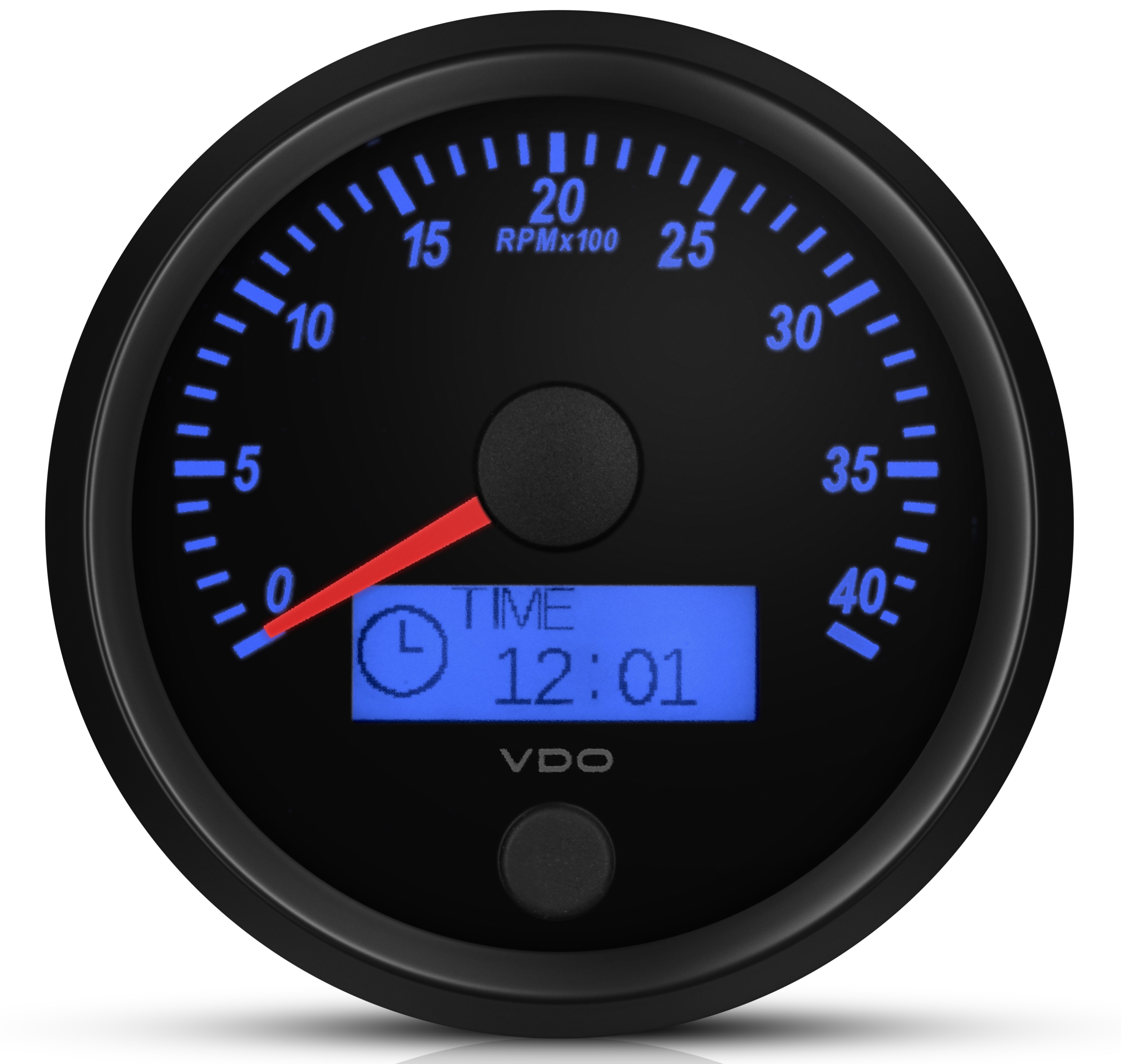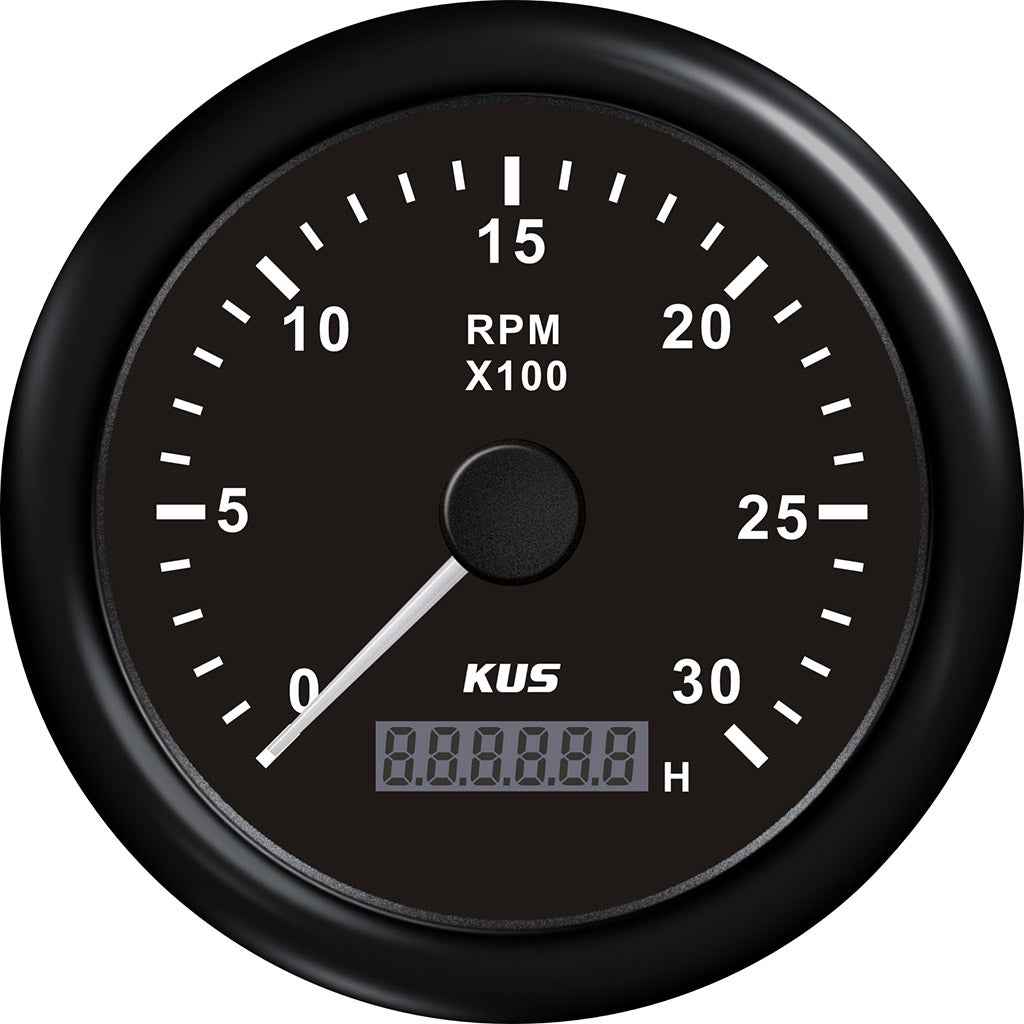Tachometer Fundamentals: Whatever You Need to Know for Accurate Readings
Tachometer Fundamentals: Whatever You Need to Know for Accurate Readings
Blog Article
Key Reasons Why Having a Tachometer Is Important for Maintaining Engine Health and Effectiveness
In the world of automotive maintenance, the significance of a tachometer can not be overstated - tachometer. This simple yet essential tool plays a pivotal role in the maintenance of an engine's health and efficiency. By giving real-time data on engine rate and RPM levels, a tachometer supplies very useful insights that directly affect the performance and longevity of the engine. From preventing over-revving to optimizing gas usage, the applications of a tachometer are multifaceted and necessary for any kind of car proprietor or fanatic. So, why is this seemingly easy gadget so crucial? Let's explore the essential reasons behind its critical function in preserving engine health and effectiveness.
Avoiding Engine Over-Revving

To protect the engine from potential damages, it is essential to implement actions that stop over-revving, a method that can lead to pricey repair services and decreased engine lifespan. Over-revving takes place when the engine's rotational rate exceeds the maximum limitation set by the supplier, triggering undue stress and anxiety on interior components such as pistons, shutoffs, and attaching poles. This excessive pressure can cause mechanical failures, consisting of bent shutoffs, damaged pistons, and also disastrous engine failing.
A rev limiter is a gadget that regulates the maximum RPM (revolutions per minute) of the engine by either reducing off gas circulation or trigger to the engine when the pre-set limitation is gotten to. Normal upkeep checks to ensure the engine is in optimal condition can likewise assist in protecting against over-revving events and prolonging the engine's life expectancy.
Enhancing Gas Intake
Reliable gas intake plays an essential function in making the most of the efficiency and sustainability of an engine. tachometer. Optimizing fuel consumption not only helps in decreasing operational costs but also reduces the ecological impact of automobile discharges. By using a tachometer to keep an eye on engine rate and change driving practices appropriately, chauffeurs can achieve far better gas performance
Keeping a consistent speed and preventing sudden accelerations and decelerations can significantly boost gas economic situation. Furthermore, appropriate equipment choice based on the tachometer analyses makes certain that the engine runs within its ideal range, leading to extra reliable fuel combustion.
Routinely keeping track of the tachometer can also aid determine any inadequacies or mechanical problems that might be influencing fuel consumption. An unexpected increase in gas use without a corresponding adjustment in driving practices can this page suggest a trouble that needs focus.
Surveillance Engine Health
Checking engine health is necessary for ensuring optimal performance and durability of the automobile. By making use of a tachometer to monitor engine speed, chauffeurs can find abnormalities that might suggest potential issues with the engine. A tachometer provides real-time data on engine transformations per minute (RPM), allowing chauffeurs to recognize any unusual spikes or decrease in RPM that could indicate issues such as misfires, damaged parts, or engine overheating.

Regularly checking engine health with the use of a tachometer enables vehicle drivers to resolve concerns quickly prior to they escalate and trigger considerable damages. Discovering a decline in RPM could show gas distribution problems or a blocked air filter, while an unexpected rise in RPM may aim to issues with the transmission or exhaust system. By staying alert and responsive to adjustments in engine performance, motorists can protect against costly fixings and guarantee the total health and efficiency of their lorry.
Increasing Engine Life Expectancy
Ensuring the long life of an engine needs diligent upkeep methods and attentive surveillance of crucial efficiency indications. Extending an engine's life expectancy is critical for reducing general automobile upkeep costs and avoiding unforeseen failures. A tachometer plays a considerable duty in this facet by offering real-time data on engine rate, enabling chauffeurs and technicians to make enlightened decisions to avoid extreme deterioration.

Additionally, regular maintenance based on tachometer readings, such as prompt oil adjustments and ignition system substitutes, can substantially add to extending the engine's longevity. In general, integrating a tachometer right into regular engine monitoring techniques is necessary for maintaining read here the engine's health and efficiency over the long-term.
Saving Cash on Fixes
A tachometer aids in keeping track of the engine's RPM (transformations per min), allowing chauffeurs to run within the advised variety. By staying within these optimal RPM levels, too much pressure on the engine can be stayed clear of, minimizing the chance of expensive repairs due to exhausting the engine.
Moreover, by utilizing the data from a tachometer to exercise smooth acceleration and deceleration, drivers can lengthen the life-span of their automobile's parts, eventually saving money on maintenance and substitutes. Generally, the insights given by a tachometer equip vehicle drivers to make informed choices that can prevent unnecessary wear and tear on the engine, resulting in substantial cost financial savings in the long run.
Final Thought
To conclude, a tachometer plays a critical function in preserving engine health and wellness and effectiveness by stopping over-revving, optimizing gas intake, keeping an eye on engine health and wellness, extending engine life-span, and conserving cash on repairs. It is a crucial device for making sure that the engine operates within secure restrictions and executes at its ideal, eventually adding to the long life and total performance of the vehicle.
Report this page